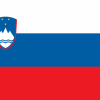By 2030, the ICT sector will offer the highest number of job opportunities for young people

The Information and Communication Technology (ICT) sector in Slovenia (and in the world) is expanding rapidly, and projections point that by 2030 it will offer the highest number of job opportunities in the country, driven by the digital transition. The ICT professions of the future is a theme that is often discussed, and this was the case on the 10th jubilee of the Slovenian conference INTERACT (an annual conference that brings together young people from Slovenia and North Macedonia.
The future jobs in the ICT sector
Ana Pejić, Project Manager at the Digital Innovation Hub Slovenia (DIH Slovenia) joined the "Future Professions in ICT" on the second day of the conference to give an overview of the need for various digital profiles in Slovenian organisation, together with a summary of how this impacts (and is projected to impact) the world of work on a local, regional, and national level. She also presented a forecast for the skills industry will need over the next 5 years.
As pointed out by Pejić, the highest value amongst the digital profiles of the future goes to the profile of an AI and machine learning expert (i.e. an AI and machine learning specialist), followed by project manager and developer profiles, with product owner and graphic designer following close, among the top five profiles.
At the same time, the gap between the number of ICT specialists currently employed and the shortage of digital experts needs to be reflected upon. The gap seems to widen due to increased needs for specific digital profiles. This is also why the Slovenian Digital Coalition and the Slovenian DIH focus their activities on strengthening young people’s digital competences and inspiring ICT professions.
Tech skills are not all: let's look at soft skills
Despite the fact that the most sought ICT profiles require digital and technical competences, there is no doubt that soft skills are needed across roles and digital profiles. The INTERACT conference helped to highlight further the need for organisations to invest in skills building and development in other skillsets too, fostering a holistic approach towards lifelong learning and the world of work. Non-cognitive and soft skills, like the ability to communicate, collaborate with other people in the team, and exchange ideas with various types of stakeholders increase performance and offer a unique set of multidisciplinary solutions to business challenges.
For the tenth year in a row, INTERACT brought together young people aged 12-18 from Slovenia and North Macedonia who are either members of an INTERACT club or primary or secondary school students, who want to come together and learn something new. The conference brought together 90 young people and 30 mentors and rotary staff this year and the content of the conference focused on socialising, sharing experiences and empowering working life.
Credit: Ana Pejic, Project Manager at DIH Slovenia






